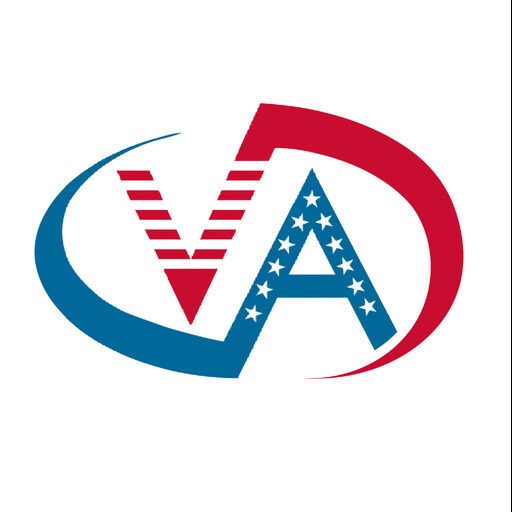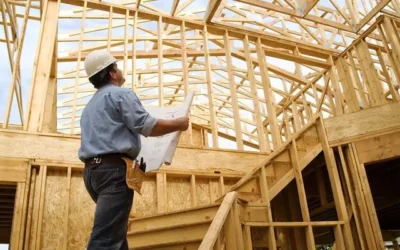Buying a home with a VA loan in the 2026 real estate market is a big advantage for Veterans. Increased interest rates and inflation concerns have cooled demand from buyers, resulting in increased listing availability and fewer bidding wars.
The climate is especially favorable for military families who can utilize no-down-payment financing, lower interest rates, and possible seller concessions.
Whether you’re relocating from active duty or becoming part of the civilian population, gaining knowledge on local idiosyncrasies, strategizing your purchase, and consulting VA-aware professionals can pay you thousands.
Why the 2026 Housing Market Is Less Competitive
After years of frenzied bidding wars and all-cash buyers dominating the market, the 2026 housing market is finally starting to see buyer-friendly balance. According to estimates by the National Association of Realtors, mortgage rates are in the 6.5% to 6.8% range, discouraging some potential buyers and slowing the frenzied 2021–2023 boom. In the meantime, inventories have gone up across the country—estimates put the year-over-year growth at as much as 20–25% in active listings, with certain areas reporting even bigger spikes.
- Rising Interest Rates: Higher rates tend to temper buyer enthusiasm, which can soften demand.
- Increased Inventory: More listings mean buyers can take their time and negotiate better deals.
- Less Buyer Demand: Economic uncertainty and inflation concerns have prompted many to hold off on purchasing.
- Seller Behavior Shifts: Homes are spending more days on the market, leading to price reductions and potential seller concessions.
Disclaimer: All real estate market data and forecasts are subject to change based on economic conditions, government policies, and regional factors.
How a Less Competitive Market Helps Veterans
In the frenzy of previous years, Veterans using VA loans often lost out to all-cash or conventional offers. Now, fewer bidding wars and more willing sellers create a golden opportunity for Veterans buying a home in 2026. Key benefits include:
- VA Loan Acceptance: As sellers receive fewer offers, they’re more open to VA financing.
- Stronger Negotiation Power: Veterans can request concessions like repair credits or coverage of the VA funding fee.
- Reduced Pressure to Overbid: Fewer bidding wars mean you can keep your contingencies and avoid paying above market value.
“My Veteran clients who struggled to compete during 2021–2023 are finding far more success in 2026. Sellers are no longer skittish about VA appraisals or slightly longer closing timelines,” shares Patricia Hayes, a real estate agent specializing in military relocations in Virginia Beach*.
Regional Insights for Veterans in 2026
While the national housing outlook is generally less competitive, location-based market conditions can vary widely. Here’s how some regions and cities with high Veteran populations are faring:
| Region/City | Key Trends (2026) | Reasons for Veteran Appeal |
|---|---|---|
| Texas (e.g., Killeen, San Antonio) | Inventory up by 25%, moderate price growth of ~3% YoY | Proximity to major bases like Fort Hood; strong job market |
| Florida (e.g., Tampa, Jacksonville) | Inventory up by ~28%, high demand but fewer bidding wars | Military bases, warm climate, strong VA loan usage history |
| Virginia (e.g., Hampton Roads) | Slow price growth (~2.5%) and longer days on market | Large active-duty population; plenty of VA-savvy realtors |
| California (e.g., San Diego) | Inventory improvement, but prices remain relatively high | Significant Veteran community near bases like Camp Pendleton |
| Colorado (e.g., Colorado Springs) | Balanced market, ~3% YoY price increase, fewer cash offers | Strong military presence near Fort Carson; scenic lifestyle |
*Data compiled from local MLS boards, military relocation specialists, and public records. Actual conditions may vary.
Why 2026 is a Great Time for VA Loans
The VA loans 2026 housing market scenario is highly favorable for Veterans. With fewer buyers competing and sellers increasingly open to various financing options, you can harness these VA loan advantages:
- No Down Payment: Retain your cash reserves for emergencies or home improvements.
- Non-Allowable Fees Are Prohibited: Lenders cannot charge certain fees, saving you money.
- Lower Interest Rates (Typically): VA rates often undercut conventional mortgages, reducing monthly payments.
- Funding Fee Flexibility: Roll the fee into your mortgage or negotiate for the seller to cover it.
- Less Strict Credit Requirements: Veterans with lower credit scores can still qualify.
According to Maxwell Thompson, a VA loan officer with 15 years’ experience, “Interest rates may be higher overall in 2026, but VA borrowers often secure rates at least 0.25% lower than their conventional counterparts. Over 30 years, that can translate into thousands in savings.”
Comparing 2026 to the Pandemic-Era Market
| Factor | 2021–2023 (Hot Market) | 2026 (Less Competitive) |
|---|---|---|
| Average Mortgage Rate | 3.0%–4.5% | 6.5%–6.8% |
| Inventory Levels | 1–2 months’ supply | 3–4 months’ supply |
| Bidding Wars | 30%–40% of homes sold above list | 15%–25% above list |
| VA Loan Acceptance | Often sidelined by cash offers | Widely accepted, fewer competing offers |
| Seller Concessions | Rare, minimal negotiation | More common, up to 4% of purchase price |
Strategies for Finding and Negotiating a Home in 2026
1. Get Pre-Approved for a VA Loan
Start by verifying your Certificate of Eligibility (COE) and seeking pre-approval from a lender specializing in VA loans. A pre-approval letter strengthens your offer and shows sellers you’re serious.
2. Choose a VA-Savvy Real Estate Agent
Look for an agent experienced with military buyers. They’ll understand the nuances of VA financing, know how to structure offers, and can guide you through local market conditions—especially crucial in places like Hampton Roads, San Antonio, or San Diego, where military relocations are common.
3. Time Your Purchase
If possible, aim for the off-season (November–February). Fewer buyers are active, which can reduce competition and bolster your negotiating power. Also consider targeting homes that have been on the market for 30+ days or were recently delisted and relisted.
4. Negotiate Seller Concessions
One of the biggest perks of VA loans is the ability to request up to 4% of the purchase price in seller-paid closing costs. In a cooling market, more sellers are willing to oblige.
5. Use an Escalation Clause Sparingly
If you suspect a bidding war may still happen—especially in popular neighborhoods—consider an escalation clause that automatically increases your offer up to a set limit. However, use it cautiously to avoid overpaying.
6. Prepare for the VA Appraisal
VA appraisals can be stricter than conventional ones. In 2026, appraisal gaps are less frequent, but if a home appraises below the contract price, you may need to negotiate a lower price or pay the difference in cash. To mitigate this risk:
- Review comparable sales with your agent.
- Request a Tidewater Initiative if the appraisal looks low (allows you to provide additional comps).
- Keep an emergency fund for potential gaps.
Potential Challenges and How to Overcome Them
Even in a less competitive housing market, Veterans may face certain obstacles:
- Affordability Concerns: Median prices remain elevated in many regions. Offset this by choosing smaller homes, negotiating aggressively, or exploring more affordable suburbs.
- Economic Uncertainty: Inflation and recession fears can disrupt lending. Maintain a stable credit profile and reduce other debts to improve your loan terms.
- Limited Awareness of VA Benefits: According to VA data, about 10% of eligible Veterans don’t realize they qualify. Spread the word in military communities, or consult a dedicated VA loan officer.
Market Forecasts for 2026 and Beyond
While no one can predict the future with absolute certainty, most reputable sources (e.g., Freddie Mac, Realtor.com*) suggest that the 2026 housing market will remain relatively balanced, with a modest uptick in inventory and stable (but slightly elevated) interest rates. Price growth may hover around 2%–4% year-over-year, far less aggressive than previous cycles. This environment should continue to favor Veterans who utilize their VA loan benefits wisely.
Disclaimer: Market forecasts are estimates and subject to change based on unpredictable factors like economic shifts, policy changes, and global events. Always consult with a financial advisor or real estate professional.
Action Steps for Veterans
- Check VA Loan Eligibility: Verify your status through the VA’s eBenefits portal or consult a VA-approved lender.
- Partner with Specialists: Choose a real estate agent and lender who regularly work with Veterans.
- Research Local Markets: Focus on regions with rising inventory and moderate pricing—Texas, Florida, Virginia, California, Colorado.
- Plan Your Finances: Strengthen your credit score, save for a cushion, and aim for minimal debt-to-income ratio.
- Stay Flexible: Remain open to slightly older or longer-listed homes to negotiate better deals.
Frequently Asked Questions
- Is 2026 a good time to buy a house with a VA loan?
Yes. Higher inventory, fewer bidding wars, and more open-minded sellers make 2026 an excellent time for VA buyers. - How can Veterans avoid competition in 2026?
Target homes on the market over 30 days, consider off-season purchases, and focus on areas with higher inventory. - What if the VA appraisal comes in low?
You can renegotiate the price, pay the difference in cash, or invoke the Tidewater Initiative to provide additional comps. - Are seller concessions still limited to 4%?
Yes. The VA allows sellers to contribute up to 4% of the purchase price towards closing costs and fees. - Should I wait until 2026 to buy?
If you’re financially ready, 2026 may offer more favorable conditions. Waiting could lead to higher prices if the market heats up again. - Where are the best places for Veterans to buy a home in 2026?
States like Texas, Florida, Virginia, California, and Colorado typically have strong military communities, good VA lender support, and robust inventory. - Can I use an escalation clause with a VA loan?
Yes. An escalation clause can strengthen your offer. Just be sure not to exceed what you can comfortably afford. - Is PMI required for VA loans?
No. VA loans do not require private mortgage insurance (PMI), potentially saving you hundreds each month compared to conventional loans.
The Bottom Line
If you’ve been waiting on the sidelines, 2026 may be the perfect window to leverage your VA loan benefits.
Higher mortgage rates and expanded listing inventories have eased the fierce bidding wars of the past few years, giving Veterans a real shot at favorable prices, better seller concessions, and smoother closings.
By timing your purchase, savvy negotiating, and employing VA-smart agents, you can beat such drawbacks as appraisal deficiencies and affordability challenges.
Your hard-earned military benefits provide you with the advantage in this less competitive marketplace. Take a risk, secure your dream house, and build the future that you deserve.

The VA Loan Network Editorial Team is comprised of dedicated mortgage specialists and financial writers committed to providing veterans and service members with accurate, up-to-date information on VA loan benefits, eligibility, and the home-buying process.








